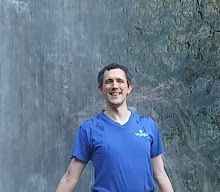Before his ten-month tracking ordeal, Cliff Stoll believes in creative anarchy: loosely interpreted, people can do whatever they want. After all, hackers expose flaws in the network’s security and even inspire better systems. But after the long, emotionally draining journey, Stoll concludes that there are at least two severe drawbacks to hacker freedom:
1. Hackers sap the workforce of time and resources.
Just like a burglar who robs a small town, Stoll argues, a hacker costs the system time and resources. Responsibility for the loss obviously belongs with the hacker.
2. Hackers undermine confidence in a system that networks need to function.
At the outset, a hacker may have a fairly harmless motivation (such as curiosity), but even then, his findings will inspire other hackers. It is naïve to suppose that they will all be similarly kind-hearted. Indeed, as the example of Hess shows, the original hacker’s motives can easily change for the worse down the road.
A third reason is implied but not stated explicitly: Because 1 and 2 are wrong, hackers’ activities undermine the moral principle of accountability for one’s actions. If hackers really wanted to help create safer systems, they could report the bugs to systems designers, and people would call them testers and pay them money. In actuality, hacking stems from disrespect for others’ privacy and for the universal law of justice. By contrast, it was a genuine desire to vindicate justice that drove Stoll, Steve, Wolfgang, and others on, often with little appreciation for their efforts.
In hindsight, it is easy to be complacent about the end result. After all, the bad guys were caught. But there is a more important lesson: If it had not been for the exertions of good, capable people like Stoll, the hackers might never have been caught. These people realized that, more than just a network, justice itself was under attack.
So what do we conclude? As Stoll hinted, what the world needs is not more network cops, but more honesty. But what the world will get is up to our individual choice. For posterity’s sake, let’s hope we choose wisely.
Read a summary of the book:
http://en.wikipedia.org/wiki/The_Cuckoo's_Egg_(book)
Subscribe to:
Post Comments (Atom)

No comments:
Post a Comment